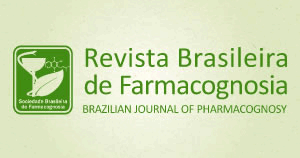Abstract
In this study, 39 extracts from marine organisms were evaluated as quorum sensing inhibitors, collected in the Colombian Caribbean Sea and the Brazilian Coast including 26 sponges, seven soft corals, five algae and one zooanthid. The results showed that crude extracts from the soft coral Eunicea laciniata, and the sponges Svenzea tubulosa, Ircinia felix and Neopetrosia carbonaria were the most promising source of quorum sensing inhibitors compounds without affecting bacterial growth, unlike the raw extracts of Agelas citrina, Agelas tubulata, Iotrochota arenosa, Topsentia ophiraphidites, Niphates caycedoi, Cliona tenuis, Ptilocaulis walpersi, Petrosia pellasarca, and the algae Laurencia catarinensis and Laurencia obtusa, which displayed potent antibacterial activity against the biosensors employed. The crude extract from the sponge I. felix was fractionated, obtaining furanosesterterpenes which were identified and evaluated as quorum sensing inhibitors, showing a moderate activity without affecting the biosensor's growth.
Keywords
Quorum sensing; Marine products;
Ircinia felix
; Furanosesterterpenes; Biofilm



